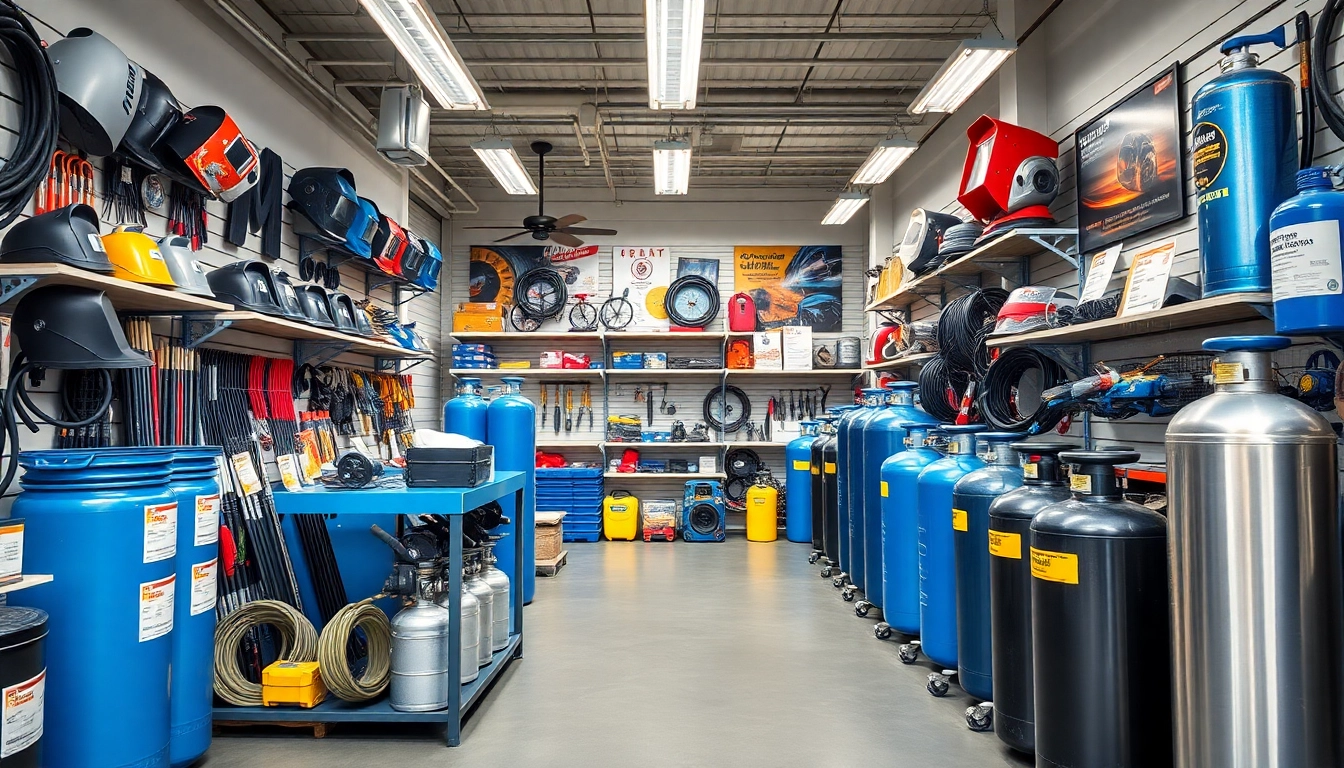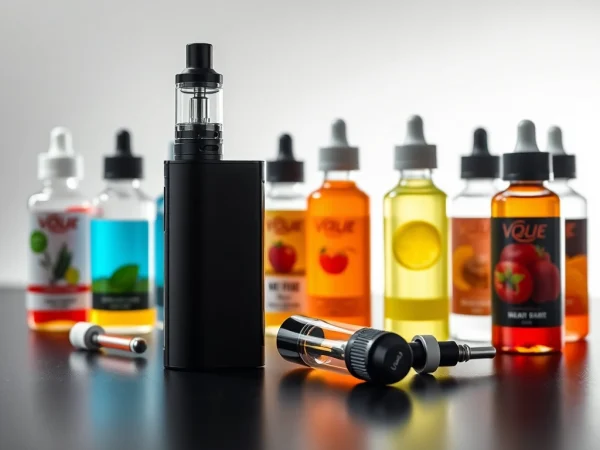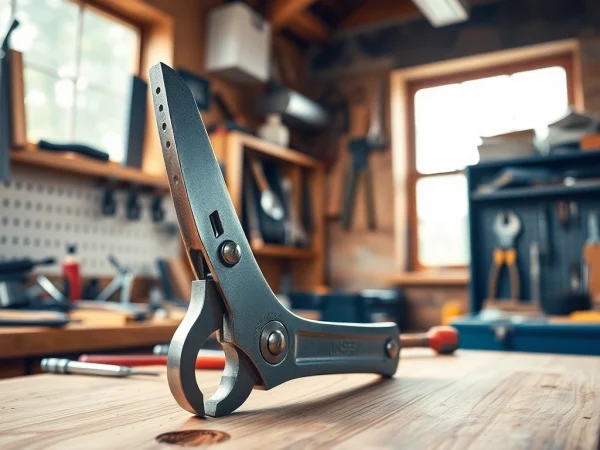Your Guide to Finding the Best Welding Supplies Near Me
Understanding Your Welding Supply Needs
As a welder, whether you’re a seasoned professional or a DIY enthusiast, having the right welding supplies is crucial for your projects’ success. It can determine the quality and durability of your welds, as well as your overall safety during work. When searching for welding supplies near me, it’s essential to understand the necessary equipment, materials, and safety gear that you may require.
Identifying the Right Equipment
Welding equipment varies significantly depending on the type of welding you plan to do. The three main types of welding processes include Shielded Metal Arc Welding (SMAW), Gas Metal Arc Welding (GMAW), and Gas Tungsten Arc Welding (GTAW). Each process requires specific equipment:
- SMAW (Stick Welding): Typically requires an electric welder, welding rods, and clamps.
- MIG Welding: Involves a MIG welder, shielding gas, filler materials, and a wire feed.
- TIG Welding: Needs a TIG welder, tungsten electrodes, filler rods, and shielding gas.
When choosing your equipment, consider factors like the material you’re welding, the thickness of those materials, and the desired weld quality. Investing in higher-quality equipment may offer better performance and longevity, while entry-level tools can help you get started.
Common Welding Materials and Their Uses
Welders use various materials depending on the application and the welding process. Understanding these materials is key to ensuring effective welding:
- Steel: The most common welding material due to its strength and versatility. It can be used in construction, automotive, and shipbuilding industries.
- Aluminum: Lightweight and resistant to corrosion, aluminum is popular in the aerospace and automotive sectors.
- Stainless Steel: Known for its resistance to rust and corrosion, making it ideal for food processing and medical equipment.
- Cast Iron: Difficult to weld, but necessary for repairing old machinery and automotive parts.
Choose the right filler materials and welding rods to match your base material for strong, durable welds.
Safety Gear Essentials for Welders
Safety is paramount in welding due to the potential hazards involved. Effective protective gear can prevent injuries and ensure a safer working environment. Essential safety gear includes:
- Welding Helmet: Protects your face and eyes from harmful UV rays and sparks.
- Gloves: Heat-resistant gloves are necessary to protect your hands while welding.
- Protective Clothing: Flame-resistant jackets, aprons, and pants to shield your skin from sparks and heat.
- Respirator: Helps in preventing respiratory issues due to fumes and gases produced during welding.
Preventative measures and proper safety gear not only protect your body but also enhance your concentration and efficiency during work.
Where to Find Welding Supplies Near Me
Finding nearby welding supplies is made easier with numerous retailers and online options available. Whether you prefer to pick up your materials in person or shop from the comfort of your home, there are options for everyone.
Top Retailers Offering Quick Pickup
Local hardware and home improvement stores offer convenient options for picking up welding supplies quickly. Some popular retailers include:
- The Home Depot: Known for its wide selection of welding supplies ready to pick up today.
- Tractor Supply Co: Offering a range of welding equipment and materials, specifically catered to rural and industrial applications.
- Lowe’s: Carries various welding equipment, from machines to rods and protective gear.
- Ace Hardware: Each store’s inventory can vary, but many locations offer a selection of welding supplies for immediate pickup.
Online Options for Convenient Shopping
If you prefer shopping online, many retailers provide comprehensive inventories of welding supplies that can be delivered directly to your door. Notable options include:
- Amazon: Offers a vast range of welding supplies with user reviews to help guide your choices.
- Harbor Freight: Provides budget-friendly options for welding equipment and accessories.
- Supplier Websites: Many welding supply companies run their own e-commerce sites, allowing for tailored browsing based on your needs.
Local Suppliers to Consider
For those focused on supporting local businesses, check out specific welding suppliers available in your area. Examples include:
- Airgas: A leading supplier of welding and industrial equipment with numerous locations across the USA.
- Crumpton Welding Supply: A family-owned business serving the Tampa Bay area, providing personalized service and expertise.
- Strate Welding Supply: Offers a wide selection of welding supplies and expert advice for your projects.
Comparing Prices and Quality of Welding Supplies
As you compare where to purchase welding supplies, it’s vital to evaluate both price and quality. Understanding what influences cost and how to assess quality will ensure you make informed purchasing decisions.
Factors Influencing Welding Equipment Costs
The cost of welding equipment can vary significantly based on several factors, including:
- Brand: Established brands may charge more due to their reputation for quality and reliability.
- Type of Equipment: Specialized equipment, such as TIG welders, often costs more than entry-level models.
- Availability: Local supply shortages can drive prices higher, while online deals can provide discounts.
Evaluating Product Reviews and Ratings
When looking for welding supplies, taking the time to read product reviews and ratings can be invaluable. Look for feedback on performance, durability, and ease of use:
- Online marketplaces often feature customer reviews that give insight into real-world product performance.
- Forums and community websites can provide user experiences, which can help in understanding unique challenges.
How to Spot Quality Welding Gear
Quality welding gear is essential for ensuring safety and productivity. To ensure you’re purchasing high-quality items:
- Look for Certifications: Equipment that meets industry standards will often display certifications that indicate reliability.
- Check the Warranty: A good warranty can be a sign that a manufacturer stands behind the quality of their product.
- Buy from Reputable Brands: Companies with positive track records typically deliver on quality and performance.
Tips for a Successful Welding Project
Having the right supplies is just the beginning. Proper planning and execution are necessary for a successful welding project. Here are some tips to consider:
Planning Your Welding Tasks Effectively
Start by clearly defining your project requirements. Break it down into manageable steps, including:
- Gathering supplies: Make a checklist of everything you will need before starting.
- Workspace preparation: Ensure your workspace is clean, organized, and well-ventilated.
- Setting a timeline: Plan how long each stage will take to avoid rushing.
Common Mistakes and How to Avoid Them
Even experienced welders can make mistakes. Here are some common pitfalls to avoid:
- Neglecting Safety Precautions: Always wear the recommended safety gear and ensure your workspace is free of hazards.
- Using Incorrect Settings: Setting your welder to the wrong amperage can lead to subpar welds; double-check your settings before starting.
- Ignoring Material Compatibility: Ensure that your filler materials match your base materials to achieve strong bonds.
Maintaining Your Welding Equipment
Regular maintenance of your welding equipment is crucial for extending its lifespan. Consider the following maintenance practices:
- Keep your equipment clean, removing spatter and debris after each use.
- Inspect cables and hoses for wear or damage, replacing them as needed.
- Follow the manufacturer’s guidelines for routine care and servicing.
FAQs About Welding Supplies and Techniques
What Are the Different Types of Welding?
The most common types of welding processes include:
- Stick Welding (SMAW): Common in construction and industrial work.
- MIG Welding (GMAW): Used widely for thin materials, highly favored in the automotive industry.
- TIG Welding (GTAW): Utilized for precision work in thin materials, known for its clean finish.
- Flux-Cored Arc Welding (FCAW): Similar to MIG welding but uses a continuously fed tubular wire filled with flux.
How to Choose the Right Welding Method for Your Project
Choosing the right welding method depends on several factors:
- The type of materials being welded.
- The thickness of the materials.
- Desired weld appearance and strength.
- Available equipment and your skill level.
When Should I Replace My Welding Equipment?
It’s time to consider replacing your welding equipment when:
- Performance has declined significantly, affecting your project quality.
- Frequent breakdowns occur, leading to downtime.
- Repair costs begin to exceed the equipment’s value.
- Upgrading would provide new features that enhance productivity and quality.










